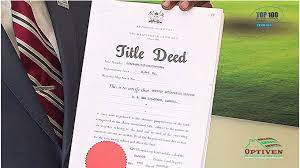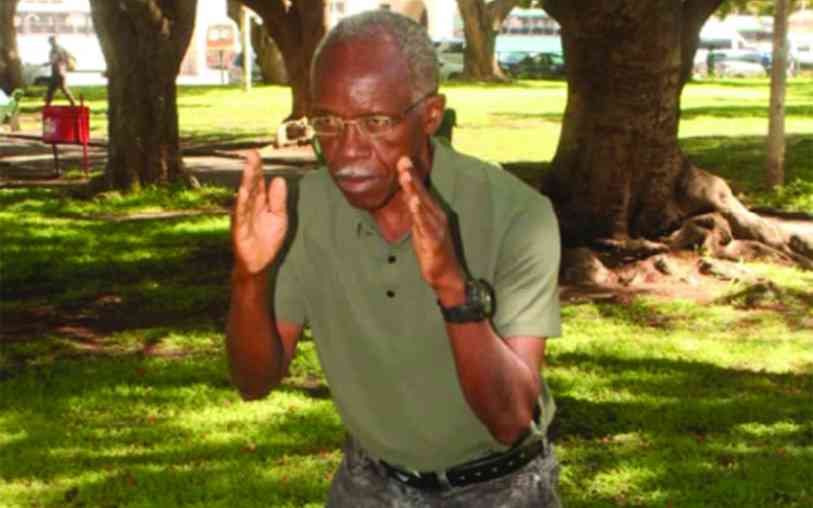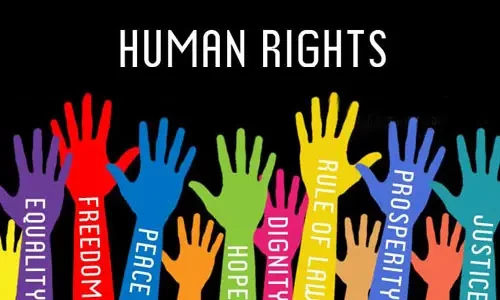
ONE of the most inexplicable traits of humanity is a craving: An unquenchable, lustful desire to own something. Since time immemorial, both woman and man take pride in having something that they call exclusively their own. The conundrum, paradox and controversy surrounding core human rights world over is that we own our bodies, so they should neither be violated, nor should anyone dictate what we do with ourselves.
Ownership is a human right
That to us liberals, is the basis of and foundation for individual freedom. On any other day, the “this is mine” narrative extends to everyday life practices like abortion, euthanasia, what we eat, drink, smoke or enjoy. However, at another level: family, society, or the State arrogate upon themselves responsibility of “telling us” what to or what not to do. In other words, freedom crusaders question the very essence of laws and regulations that limit what we can inflict even on ourselves, allegedly “for the good of ourselves”.
In a functional constitutional democracy, this “oversight” responsibility remains firmly entrenched in the judiciary. Not only because the Judiciary is the third leg on which constitutional democracy stands, but also wields a constitutional mandate to protect our right to property as individuals.
The judiciary is a creation of, for and by man. However, just like any entity of human creation, that “system” is not infallible, thus susceptible, vulnerable and exposed to error. Courts pronounce precedent judgments, but do not make laws. Therefore, functionality of judiciary is in its ability to accurately interpret existing laws, even when such laws are bad for us. One such law in Zimbabwe is that of property ownership.
The morality of law
When you track the thread of misery woven by late former President Robert Mugabe relating to land expropriation without compensation, you encounter a judiciary complicit in legislated private property vandalism. Yes, judges and magistrates insist that theirs is a duty to interpret laws. The problem is that law on its own is devoid of moral consciousness. Thus, what it needs are men and women at the bench, not prone to heartless medieval interpretation of statutes.
When 5 000 commercial farmers; 500 000 farm workers and their dependents lose sources of livelihoods; when financial institutions and agricultural service providers have their capital decimated — through State-sponsored violation of property rights — the judiciary should be the last frontier of human sanity.
- Businessman piles pressure on top judge
- More details emerge in Justice Gwaunza saga
- Biti reported to Law Society
- Ziyambi taken to task over promised title deeds
Keep Reading
We saw it again during Operation Murambatsvina, when thousands of private homes and businesses of so-called “illegal occupiers” were demolished, sending millions of citizens into irretractable poverty and blatant homelessness. The judiciary stood there, apparently bemused. A decade or so later, the song returns — a story for another day, yet when COMALISO argued ad infinitum that rural citizens, resettled farmers and urban poor need secure title deeds, nobody listens. Now, here is yet another twist of complicity by the judiciary and its ambivalence to “moral judgement” when it comes to the title deeds value chain.
A case of corruptive collusion
In the past few months, Zimbabweans have witnessed cases of private property owners losing their investment not at the Central Deeds Registry, but at the courts. We witness academic Dzingai Mutumbuka and entrepreneur Tendai Mashamhanda being victims or beneficiaries of title deeds fraud. Among us liberals, this raises significant concerns on credibility of our country’s title deeds value chain. By examining similar cases as the Mutumbuka and Mashamhanda experiences, one can easily draw conclusions on shortcomings of Zimbabwe’s title deeds system and implications for property rights. Let us endeavour to summarise these.
Despite existence of Central Deeds Registry responsible for verifying and authenticating legal title ownership, fraudulent transactions are prevalent. This points to a failure or lack of proper checks and balances within the property registration value chain that inadvertently encourages manipulation of records.
The unsavoury scenario would not be possible had there been no sinister collusion and corruption. Title deeds transfer value chain begins with property developers, then property seekers through to sellers/agents, Registrar-General, surveyors, local authorities, conveyancers up to the Central Deeds Registry. More often than not where either property owner or seller is dissatisfied, either of then turns to the judiciary for sensible and sustainable arbitration. And this is where COMALISO intends to wipe tears of desperation.
In the Mutumbuka and Mashamhanda experience we alluded to earlier on, judiciary should not make but interpret the law.
However, the Mutumbuka and Mashamhanda experiences highlight failure of the justice system to provide effective legal remedies. In Mutumbuka and 39;s case, suspected fraudsters were able to forge documents and sell property without his knowledge or consent. It was, therefore, important that before the courts reached a decision, their officials, through the investigative entity of police, exercise due diligence to ascertain at what stage the title deeds value chain was desecrated.
We say this because when Mutumbuka argues in court that it is his property, blind application of laws defeats the purpose for which Judiciary is constitutionalised. This is why we insist that learned judges routinely, inadvertently, or deliberately incur a blind spot in the deeds transfer value chain. In the case of Mashamhanda, sudden emergence of a fake caveat on the property he purchased required that justice expose its potency at the Messenger of Court stage since Mashamhanda was at the “third level” of ownership. Such instances demonstrate lack of proper investigation, verification, and protection of property rights within the legal system.
Impact on investment and economic development
Failures of the justice system in aforementioned title deeds fraud cases bears lasting implications on investment and economic development in Zimbabwe. Yes, we have been told that Mugabe’s fast track land resettlement system “empowered millions of black Zimbabweans”. What we know is that ragamuffin application resulted not just in near collapse of the Agri-based financial system, but also vilification of our country by and spite from international investors who rightly feared for their property. Our country turned gradually from a net food exporter to fragile food-insecurity ill-prepared for rain-fed agriculture.
Creation of informal settlements and inundation of Chinese labourers into rural residential zones is both an environmental and cultural threat resultant from this lingering expropriation culture. In principle, without investment and savings associated with legitimate property ownership safeguarded by an independent judiciary, direct domestic and international investments are offended. Current and prospective property owners constantly face the risk of losing their assets, while potential buyers hesitate to engage in property transactions in fear of lack of judiciary protection. This ultimately undermines economic development and hampers growth of the real estate sector.
Concluding urgent reforms
COMALISO prides itself on pioneering the rural and urban poor title deeds national discourse. Both our rural research and Parliamentary Petition on the Right to Shelter are landmark projects that give us confidence to proffer title deeds reform agenda. Our long-term mandate is not just agitating for legislative reform but also collaborate with institutions that restore credibility to title deeds value chain. We encourage stakeholders to investigate further and address failures of the justice system. Our upcoming Title Deeds Security Forum on 28 March 2024 in Harare has been snubbed by the Judiciary Service Commission.
This hurts since these are the custodians of institutions mandated to interpret property rights laws. We hope this treatise will trigger a change of mind.
Moreover, we also encourage Central Deeds Registry to embrace digitalised structural and procedural transformation to strengthen its storage, verification, authentication, and access. There must be a concerted effort to combat corruption and collusion within the property transfer value chain, including increased oversight, investigations, and disciplinary measures. The legal framework for property rights protection should be constantly reviewed and updated to ensure effective remedies and safeguards for property owners.
Rejoice Ngwenya is the director of COMALISO . He writes here in his personal capacity.











